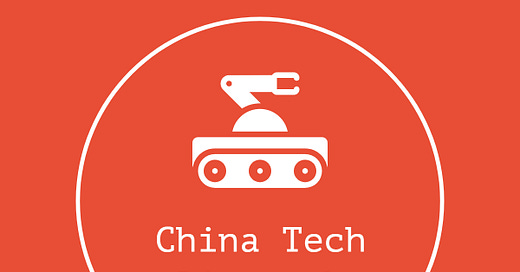Essentials of Intelligent Operation Research and Getting Cozy with Metaverse
Issue 19, 21 Feb 2022
I. Military and Warfare
Essentials of Intelligent Operation Research
This article by Liu Haijiang in PLA Daily talks about essentials of intelligence operations research. This article can be read in continuation of the article earlier published in PLA Daily. In this article, author describes key components of Intelligent combat confrontation as:
Support: network system
Core: advanced algorithm
Key: data
Highlights:
Identify the entry points for advancing intelligent warfare:
Identify the development direction based on social production: The author notes that military revolution is the result of the combined effect of the technological revolution, the industrial revolution and the need for war. In the era of intelligence, the industrial revolution driven by intelligent technologies such as unmanned platforms and artificial intelligence will surely promote the development of intelligent operations in the direction of "intelligent decision-making + self-organizing unmanned clusters".
Discover the secrets to victory through pre-practice: Intelligent combat has a large impact, strong explosive power, and high trial and error costs. To "learn war in war", it is not only necessary to closely follow the latest armed conflicts, military exercises and non-war operations, but also to make good use of advanced technologies to carry out " Pre-Practice". Hence, author argues to accumulate data plans by means of digital twins, parallel deductions and self-learning, combine training practice, real life cases and crisis handling to increase practical experience. Key to victory here is through the virtuous cycle of "scenario simulation-situation test-situation test".
Keep an eye on the way of confrontation and expansion: Intelligent warfare pursues "high chess moves" and "intelligent superiority". The focus of confrontation lies in intelligent decision-making and intelligent actions. Hence, it is necessary to link links and strengthen elements through training, improve skills and specialties through competitions, and attack algorithms through projects. Strengthen technology, train people and teams through courses, and promote integration and system through confrontation.
Key points of the intelligent winning mechanism:
The biggest difference between intelligent operations and traditional operations is the winning mechanism. Author suggests following points to device a "winning mechanisms":
Look at the extent to which the system emerges as a whole
Focus on the depth of embedded smart features
Compare the breadth of human-machine collaboration.
Measure of the strength of the mind-directing effect.
Check the rate at which damage is replenished.
Also Read:
II. SinoSync
Getting Cozy with Metaverse
Chinese local governments are joining the "metaverse"(元宇宙)) frenzy. Protocol reports that in January, at least 10 Chinese cities and provinces in China started including the metaverse industry in their economic development plans or courting metaverse companies, including shanghai and Beijing.
Last year in December, Shanghai's Party Secretary Li Qianmg had mentioned the importance of platforms facilitating interaction between the virtual and real-world in a speech to the Shanghai Municipal Party Committee Economic Work Conference.
Such attempts by local governments are being promoted under the umbrella term of "digital economy" as also highlighted in the Protocol report. The political system in China encourages competition among the local governments to attract investment and high-tech industries. As the Chinese government looks out for ways to combat economic downturns, keeping up with high-tech development seems to be a way ahead.
Metaverse (元宇宙) has gained tremendous momentum in China. According to enterprise data service company Tianyancha (天眼查), more than 1000 companies in China have applied for trademarks related to the metaverse. Tianyancha data also shows that more than 500 companies in China contain "metaverse" in their name. Around 93% of these companies have been established in 2021 alone. This shows a clear spike in the tech sector in China.
China Mobile Communication Association (CMCA), registered with the Ministry of Foreign Affairs, established a "metaverse committee" in October 2021. CMCA is backed by tech companies like China Mobile and Huawei. Such committees are generally set up when there is an emphasis on accelerating the growth of technology.
Tech giants like Baidu, ByteDance, and Tencent have also shown interest in the metaverse. Baidu has already launched its own virtual platform called "XiRang", becoming the first to do so in China. Financial Times reported that Tencent and Alibaba have also filed for trademarks on metaverse-related concepts.
As always, this frenzy has also raised some concerns among officials. On Feb 18, China Banking and Insurance Regulatory Commission (中国银行业监督管理委员会) (CBRC) issued a warning about the possible dangers of fraud in the metaverse. The warning notice mentions fraud attempts disguised as opportunities to invest in virtual investment projects, virtual-real estate, virtual currency, and pay-to-earn (P2E) games.
Digital Yuan at Beijing Winter Olympics
e-CNY, China's digital Yuan has been rolled out for foreigners visiting Beijing for Winter Olympics. ATM machines at the Beijing Olympic venue are facilitating the conversion of currency in e-CNY. e-CNY, also called Digital Renminbi, was launched by the People's Bank of China.
Some key milestones in the development of e-CNY are:
2017 - Sate Council approved digital Renminbi
2019 - People's Bank of China announced they will release digital renminbi
2020 - Initial testing of e-CNY was done in Shenzhen, Suzhou, Chengdu, and Xiong'an in April
2021 - Testing of e-CNY expanded to Shanghai, Hainan, Changsha, Xi'an, Qingdao, and Dalian
2022 - Testing of e-CNY rolled out for foreigners at Beijing Olympics
Beijing Olympics is a good place to test e-CNY's reception among foreign users and popularize its use. The US, EU, and other economies are considering launching their own digital currencies, China's e-CNY has to carve out a nice for itself, and soon.
Also Read:
US-China and Economic and Security Commission held a hearing on China's Cyber capabilities. I recommend reading Kelli Vanderlee's testimony on China's state-sponsored cyber capabilities.
EU launches WTO case against China over Huawei, Xiaomi tech infringements
Analysis: A metaverse with Chinese characteristics is a clean and compliant met-averse
Megha Pardhi is a Research Analyst at The Takshashila Institution. She tweets at @pardhimegha21.



